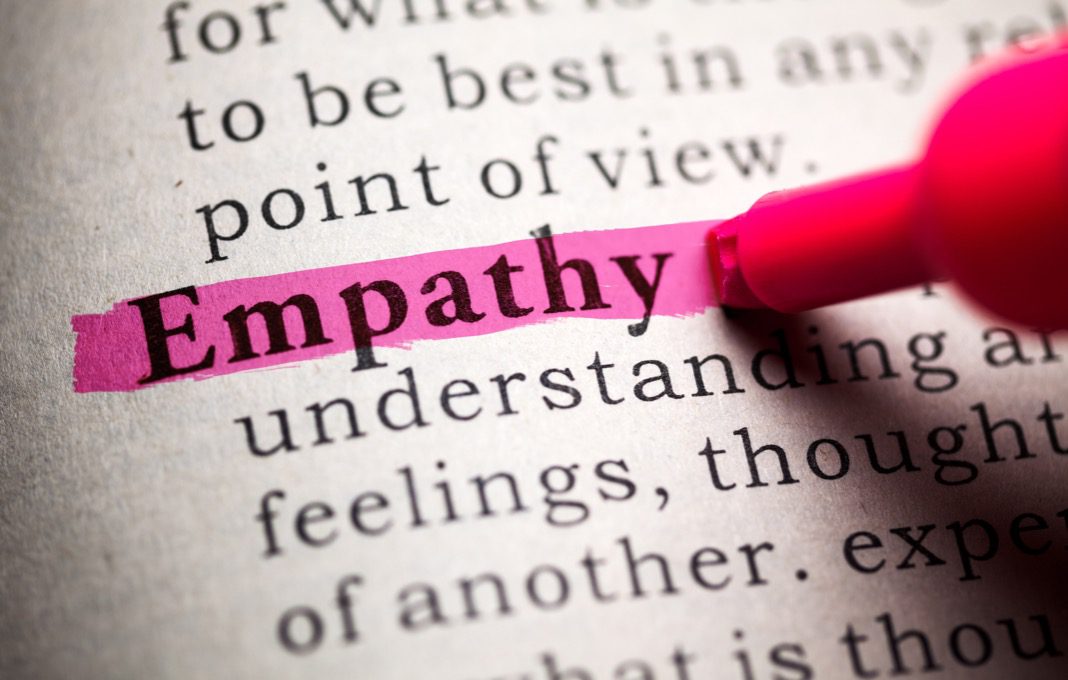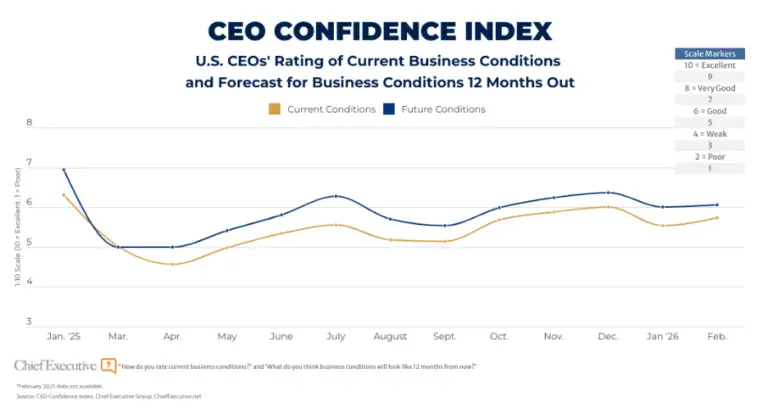People who lack empathy, as I once did, share the belief that they can get a ton accomplished when they don’t concern themselves with “people issues.”
They think that lacking empathy just might provide the buoyancy to results rather than the barrier. But the tragedy is that sometimes we need to take a subjective view. We need to humanize the people in front of us. We need to step into situations and ask: “What would I want to happen if it were me?” “What does this person need most right now?”
The challenge is how do you get leaders to start prioritizing empathy if they don’t believe it belongs in their toolbox of leadership characteristics? The evidence that empathy in the workplace is a boon for business is quite convincing: 87 percent of CEOs believe a company’s financial performance is tied to empathy in the workplace, as do 79 percent of HR professionals.
But I understand why some well-meaning, logical, reasonable, results-focused leaders find it hard to comprehend why people simply cannot do their jobs. After all, they’ve committed themselves to these roles, so why would they need coaxing, cajoling or hand-holding? It used to frustrate the heck out of me, too, until I recognized that commitment works both ways: employee to employer and employer to employee. If the employer is not committed to providing the employee the support, tools, and resources required to get their job done, they can’t expect an employee to keep their commitment to get their job done.
Memo to leaders: Empathy is understanding your employees
Of course, for the employer to commit to providing the employee what’s needed to get the job done, they must understand what those needs are. This is why leading with empathy matters. Empathy is critical to this mutual understanding. Contrary to what many believe, leading with empathy is not about hand-holding or making excuses. It is the opposite. Empathy is the foundation that allows us to move forward.
Leading with empathy is about understanding others and then strategically leveraging that understanding to make progress. Yes, I used empathy, strategic and leverage in the same sentence — I bet you didn’t expect that. The job to be done may be getting your team to arrive on time and ready to start meetings. If your team member is scheduled at a mandated meeting across town that ends 15 minutes before yours begins, and it takes 20 minutes to get across town, they rarely will be on time. If you don’t understand why they always arrive late (and stressed), you’re not going to solve the problem. In fact, a lack of understanding will make the problem worse.
Many people equate empathy with caring. When the topic of empathy comes up, it’s common for people to think, “Now you expect me to care about everyone – what they’re doing, how they’re feeling. I don’t have time for that.” While caring is often a natural consequence of practicing empathy, the truth is, caring is not required. Understanding is. When you start with understanding, you might begin to care about the person’s plight.
Meantime, let’s clear up some some long-standing myths about empathy and debunk them:
1. Empathy requires you to adopt the other person’s beliefs and values.
Empathy is not believing another’s beliefs or living another’s values. Empathy is understanding why another person believes what they believe and values what they value, even if it’s different from your own.
2. Empathy is feeling sorry for another person.
Empathy is understanding and being sensitive to another person’s thoughts, feelings, and experiences; it is not commiserating with another person, which is based on your own thoughts, feelings, and experiences. While there are times to feel sorry for people, that is not the definition of empathy.
3. Empathy makes you weak.
Empathy takes the courage to acknowledge and sit with your own difficult feelings so that you can better understand and connect with those around you. Connecting to others strengthens relationships and has been shown to reduce depression and anxiety.
4. You can’t always practice empathy.
Yes, you can. Empathy does not require action. It is the simple act of trying to understand and get into the shoes of another person. Your ability to respond better is improved as your level of understanding expands.
5. Empathy is give, give, give.
This debunking involves three components:
• While empathy can feel overwhelming at times, healthy empathy requires boundaries. You might burn out if you try to understand the feelings and circumstances of everyone around you 24 hours a day.
• Acting with empathy provides benefits to the empathizer, too. For starters, it helps you understand and regulate your own emotions and promotes better connections with others.
• You aren’t always the empathizer. You have been on the receiving end of empathy from those you choose to spend time with.
It comes down to this: empathy is a strength, not a weakness. It can be built and developed. And it’s critically important for leaders to know that. It’s vital that they strengthen their empathy muscle so they can connect with, galvanize and unify their workforce. Because a workforce that feels understood will help their leaders build a successful business.








